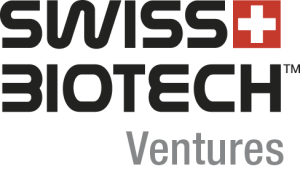Networking platforms
The power of collaboration
The Swiss Biotech Association is committed to creating and maintaining platforms that benefit all Swiss biotech companies – not only its members – in financing and partnering, search for talent and in education, branding, and networking: We unite people to collaboratively shape the ideal framework conditions for a vibrant Swiss biotech community and beyond.
As the Swiss biotech hub continues to grow, the Swiss Biotech Association constantly expands its member base. This is proof that the value of their platforms and member benefits is recognized and enables the association to effectively represent the interests of the industry.
As strong advocate for the industry, emphasizing the significance of its innovation power and investment opportunities, the association is committed to creating and maintaining platforms that benefit all Swiss biotech companies, including non-members.
Financing & partnering
The Swiss Biotech Ventures platform connects Swiss-based R&D biotech companies with global investors and industry partners and facilitates financing and partnering.
Talent search
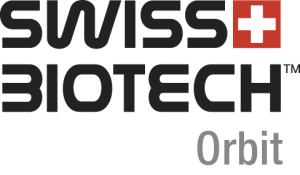 Swiss Biotech Orbit helps to match job opportunities and talents, supporting all Swiss biotech companies offering job opportunities.
Swiss Biotech Orbit helps to match job opportunities and talents, supporting all Swiss biotech companies offering job opportunities.
International collaboration
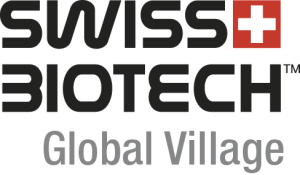 The Global Village connects foreign biotech hubs and the Swiss biotech ecosystem. It strives for lasting international collaboration with mutual benefit for all involved and with the Swiss Biotech Day as its anchor event.
The Global Village connects foreign biotech hubs and the Swiss biotech ecosystem. It strives for lasting international collaboration with mutual benefit for all involved and with the Swiss Biotech Day as its anchor event.
Brand promotion
In the pub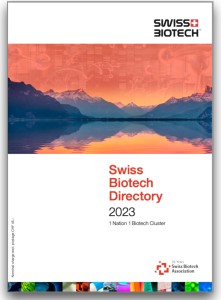 lic digital Swiss Biotech Directory over 1,400 Swiss Biotech companies are listed to increase their visibility globally by promoting their brand, products and services, and to open up new business opportunities. Additionally, the yearly print edition is distributed widely.
lic digital Swiss Biotech Directory over 1,400 Swiss Biotech companies are listed to increase their visibility globally by promoting their brand, products and services, and to open up new business opportunities. Additionally, the yearly print edition is distributed widely.
Onsite networking
![]()
The most powerful physical networking platform, the Swiss Biotech Day, developed into one of the leading global biotech conferences, with thousands of international guests.
Online communities
The Swiss Biotech Association’s community platform enables direct exchange between members and working groups as featured on this very page.
Professional development and education
 The Swiss Biotech Association Academy presents a selected mix of education on a professional level, and training opportunities offered by academic institutions.
The Swiss Biotech Association Academy presents a selected mix of education on a professional level, and training opportunities offered by academic institutions.
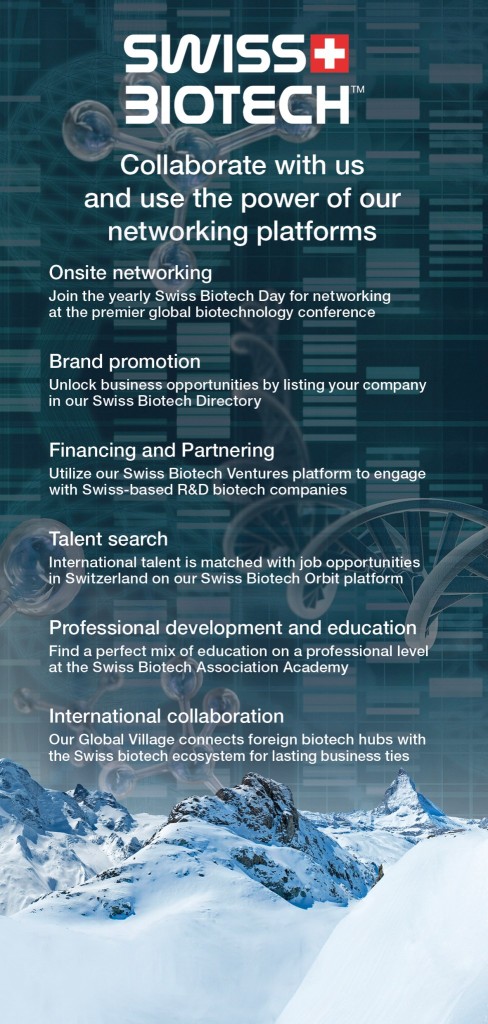
Research & science platforms
These platforms are set-up in research and science topics which are highly active and of interest for the Swiss biotech industry and academia members.
These platforms organize meetings, workshops, conferences and kick-start pre-competitive research projects:
Antibiotics Platform
Platform Leader – Markus Seeger – biotechnet link
The Antibiotics platform bundles expertise in antibiotic research across Switzerland. It focuses on the discovery and development of novel antibiotics to treat multidrug resistant bacteria, and the development of rapid diagnostics. Its members are actively involved in NCCR Antiresist and SNF NRP 72. The platform organizes 1-2 networking events per year, typically accompanied with company or university visits. These networking activities foster research collaborations between industry and academia.
Biocatalysis and Biosynthesis Platform
Platform Leader – Rebecca Buller – biotechnet link
The Biocatalysis and Biosynthesis Platform promotes biocatalysis and biosynthesis as a complementary method to classic synthesis. It helps bridge the gap between academic laboratories and the production plant. By bundling the relevant research competences in Switzerland, the platform is developing a comprehensive biocatalytic toolbox consisting of enzyme libraries and methods to facilitate the development of biocatalytic and biosynthetic processes for the chemical and pharmaceutical industries. The platform hosts its CCBIO Symposium on Industrial Biocatalysis every two years.
Biomanufacturing Platform
Platform Leaders – Regine Eibl and Thomas Villiger – biotechnet link
The current focus of the Biomanufacturing platform is the rapid development of biopharmaceutical production processes that provide protein, cell and gene therapeutics, and vaccines. This includes upstream- and downstream processing, formulation, and fill & finish. The platform has both industrial and academic research partners in Switzerland, Europe and the USA and closely cooperates with the DECHEMA working group “Single-use technology in biopharmaceutical manufacturing”.
Bioresource Technologies Platform
Platform Leader – Philippe Corvini – biotechnet link
The Bioresource Technologies Platform addresses industrial needs for chemical and material resources to supply societal demand. It focuses on the recovery of valuable inorganic and organic chemicals and materials from biowaste, wastewater, and by-products of industrial processes. The platform provides access to a network of experts to develop R&D projects for processes and products. It organises events to exchange know-how to enable translational research from academia to industry.
Data Science for Life Science
Platform Leaders – Abdullah Kahraman and Moritz Kirschmann – biotechnet link
The Data Science in Life Science platform aims to foster networking and collaborations between scientists interested in solving cutting-edge problems using data science-related tools. Our platform members are amongst other bioinformaticians, chemoinformaticians, clinical data scientists, informaticians, machine learning experts, biostatisticians. We have expertise in a wide range of topics including clinical cancer diagnostics, design of large next generation sequencing projects, protein modelling and design, drug development and virtual screening. We also have expertise related to bioproduction, including process modeling and optimization.
In Vitro Diagnostic Platform
Platform Leaders – Samantha Paoletti and Marc Pfeifer – biotechnet link
The In-Vitro Diagnostics Platform promotes technological innovation in the area of in-vitro diagnostics by providing access to a network of experts. It unites key stakeholders from industry, medicine and research organizations with skill sets ranging from molecular biology, biochemistry, micro-/nanotechnology, bioanalytics, miniaturization, automation, data management as well as regulatory affairs and health economics. The platform enables translational research through the organization of its annual event Swiss Symposium in Point-Of-Care Diagnostics.
Swiss Industrial Biocatalysis Consortium
Platform Leader – Steven Hanlon
Go to industrial biotech page
The Swiss Biotech Industrial Biotech Chapter “SIBC” will foster collaboration between industry participants, accelerate commercially-relevant innovation and promote the industrial biotech industry in Switzerland to key stakeholders in Switzerland and its international business partners.
Stem Cells and Regenerative Medicine Platform
Platform Leaders – Amiq Gazdhar and Andreina Schoeberlein – biotechnet link
The Stem Cell Research and Regenerative Medicine (SCRM) Platform is an inter-faculty and inter-institutional research cluster of the University of Bern and the University Hospital Bern, Inselspital. The lack of a profound understanding of stem cell biology and mechanisms during regenerative processes is still limiting the development and implementation of successful stem cell therapies. SCRM fosters a new and innovative multidisciplinary approach to unravel the communication network of stem cells within the tissue and throughout the body during tissue regeneration. Ultimately, our Mission is to efficiently and rapidly transfer basic research findings into clinical applications with a specific focus on cell therapy.
Tissue Engineering for Drug Development and Substance Testing (TEDD) Platform
Platform Leader – Markus Rimann – biotechnet link
The TEDD Platform promotes the application of 3D organotypic technologies, aiming to replace and reduce animal experimentation (3R) for therapies development. It focuses on education, R&D and networking. The platform is composed of members from academia, clinics, industry and non-profits. It hosts several events per year, including workshops, symposia, and company visits. The platform helps its members generate research consortia, projects and grant applications.
Training for Pharma / Biotech Platform
Platform Leader – Thomas Villiger – biotechnet link
The Training for Pharma / Biotech Platform offers industry-relevant courses and summer schools to first, second, and third cycle students. It also offers specialized training opportunities for those already working in the industry. The Platform works with the Swiss Biotech Association to connect promising talent from Biotechnet member universities with career opportunities in the private sector.
